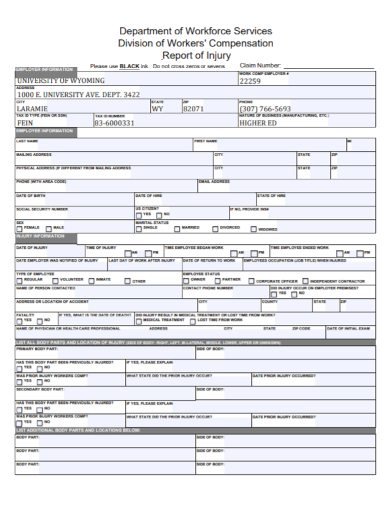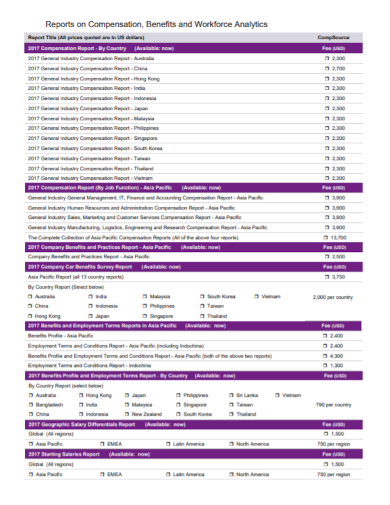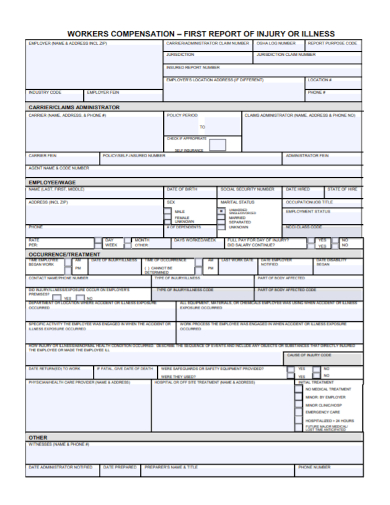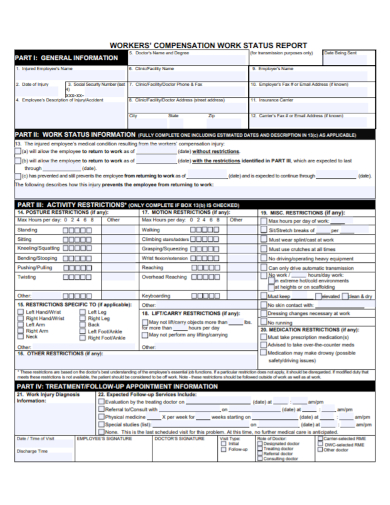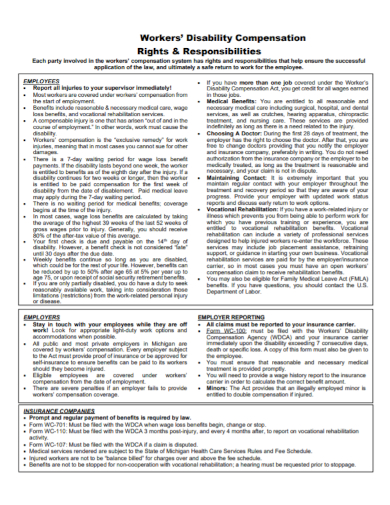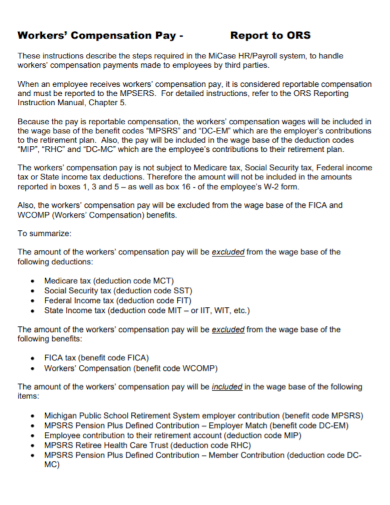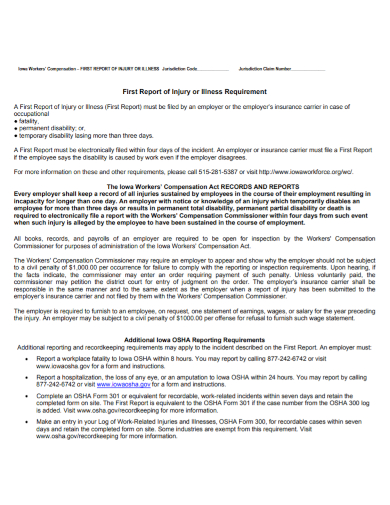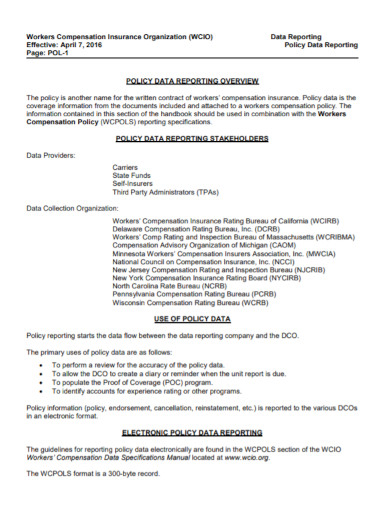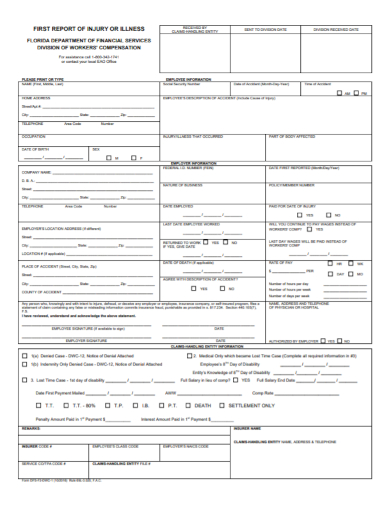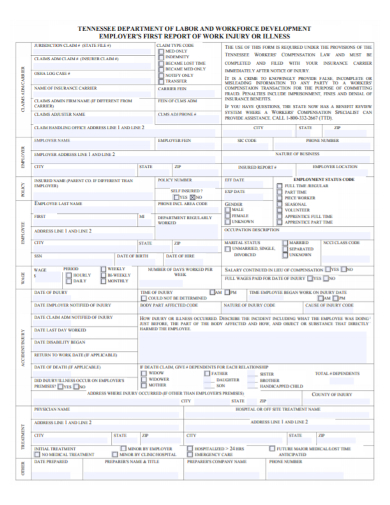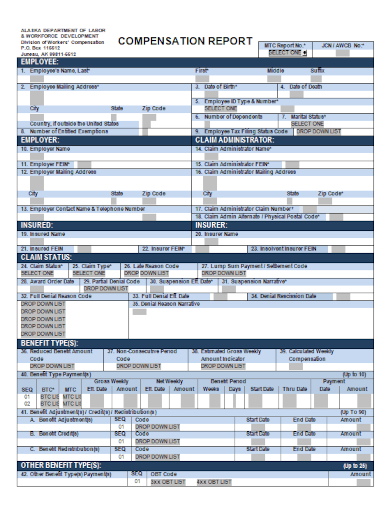Workers’ compensation, or “workers comp,” is a government-mandated program that pays benefits to employees who are injured or sick on the job or as a result of their work. It functions as a worker’s disability insurance scheme, offering monetary benefits, health coverage, or both to workers who are injured or ill as a direct result of their work. Workers’ compensation payments could include wage replacement for the time the employee is unable to work. Reimbursement for medical services and occupational therapy may also be included in the benefits package. Private insurers pay for most workers’ compensation programs with premiums paid by individual businesses.
10+ Workforce Compensation Report Samples
If you aren’t the Compensation Specialist in your HR department, odds are you aren’t overjoyed when a compensation project crosses your desk. In theory, looking through dozens of pages of compensation data tables or browsing through complex (expensive) compensation databases may appear to be a time-consuming and pointless endeavor. Compensation data, on the other hand, is much more than that. Compensation data is a strong instrument that may and should not only make your life easier as an HR professional, but also provide vital answers to important problems that have a significant or minor influence on your company.
1. Workforce Services Compensation Report
2. Workforce Benefits Compensation Report
3. Workers Compensation First Injury Report
4. Workers Compensation Work Status Report
5. Workers Disability Compensation Report
6. Workers Compensation Pay Report
7. Workers Compensation Record Report
8. Workers Compensation Policy Data Report
9. Financial Services Workers Compensation Report
10. Workforce Development Compensation Report
11. Workforce Labor Compensation Report
Creating Compensation Reports
- Job posting – Your job is done if you find the precise job title and the job description appears close. If you can’t find the specific title, look for cross-references to “alternative job titles” or dig deeper into the job descriptions, which should always be included in any trustworthy salary report. To ensure that you are comparing apples to apples, we recommend a 70 percent match in terms of job description. Depending on how your organization’s job-posting process works, you may still need to go back to IT to make sure your figures match within their budget or seek some other form of administrative permission before moving further.
- Questionable source – We all know that if something is on the Internet, it must be true. The market rate is much higher than the existing salary, and a person’s current performance more than qualifies them for a raise. But even if all of that is true, it doesn’t mean that sending you his internet search results would get him the outcomes he’s looking for. Now it’s up to you, HR, to conduct some digging. You pick up your trusted compensation report, complete with employer reports and job descriptions.
- Management meeting metrics – Your COO wants you to bring some stats to present to the group before a current senior management meeting. When you retrieve the statistics for the meeting, you discover that your production crew turnover is far higher than that of other local businesses in your industry. Your COO questions about the high turnover at the large management meeting, and you might emphasize that the company may be losing many of these more experienced personnel due to the salary offered by your competitors. Of course, this leads to a bigger discussion about your company’s general compensation strategy and the practicality of moving some of these long-serving employees to a more competitive hourly wage.
- Union negotiation – You’ve been involved in bringing compensation statistics to the table for upcoming union discussions next month. You and the union reps have a strong working relationship, but you’re aware that these negotiations always make people nervous. When it comes time to refute the proposed union contract, you know your organization is relying on you to give them with the most accurate data available, a source that can withstand on its own if negotiations become tense. So you go back to the most reliable data you can find: your local compensation survey report.
- Out of State candidate – When recruiting throughout the country, national compensation data with regional geographic breakdowns can be useful in addition to your local compensation survey report. Recognizing what the national market looks like can be a major benefit, especially for higher-level roles that may involve different sorts of compensation outside of just base salary.
FAQs
What are the types of compensation?
Hourly, Salary, Commission, and Bonuses are the four major types of direct compensation. When it comes to compensation, the majority of people are interested in direct compensation, notably base pay and variable pay.
What is a total compensation statement?
A total compensation statement is one approach for a company to demonstrate the total worth of an employee’s benefits and compensation package. Total compensation statements tell employees on their total compensation package, which includes both direct and indirect compensation, on an annual basis.
If you want to see more samples and formats, check out some workforce compensation report samples and templates provided in the article for your reference.
Related Posts
Sample Science Project Reports
Business Report Samples & Templates
Survey Reports Samples & Templates
Sample Feasibility Reports
Psychological Assessment Report Samples [ Clinical, Child, Intake ]
Report Format Samples & Templates
Acknowledgement for Internship Report Samples [ Hotel, Hospital, Teaching ]
Field Trip Report Samples [ Agriculture, Educational, Environmental ]
Student Counseling Report Samples
Narrative Accomplishment Report Samples [ Science, Teacher, Reading ]
Sample Acknowledgment Report Templates
Internship Narrative Report Samples
Interview Summary Report Samples
Sample Medical Reports
Accomplishment Report Samples

